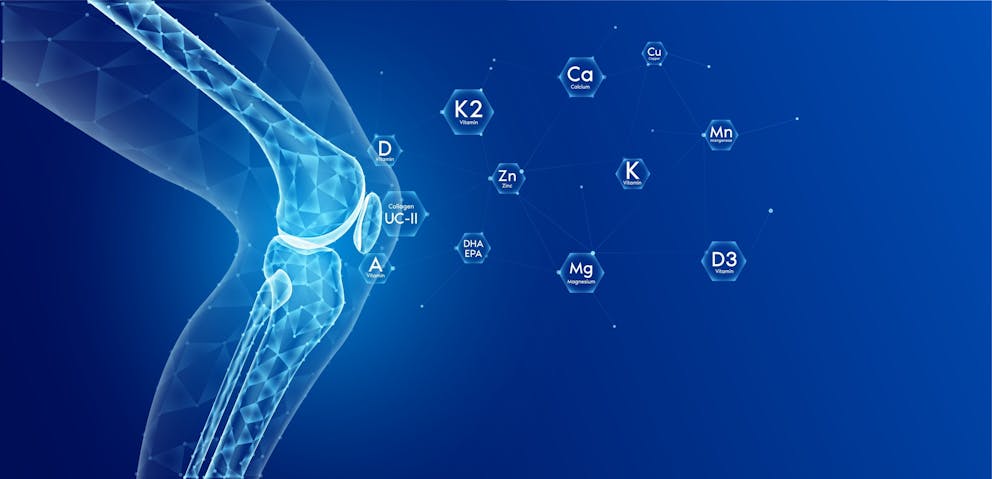Are You Calcium Deficient
Have you ever paused mid-bite into a creamy cheese or a crisp apple slice and wondered about the invisible dance of minerals keeping your body ticking? Let's talk calcium deficiency.
Yes, that stealthy disruptor lurking in the shadows of neglected nutrition labels and forgotten dairy aisles. It's more than just an occasional headline or a distant concern for the elderly; it’s a silent narrative affecting countless individuals across various life stages
Suddenly, those muscle cramps during your morning make sense.
Or perhaps that nagging back pain isn't just from "sleeping weird." Calcium is calling—or instead, its absence is screaming through every unexplained ache and inexplicable fatigue wave hitting you by 3 PM on an average Tuesday.
The plot thickens when we realize our bodies are less like efficient machines and more akin to quirky old cars; some parts work splendidly, while others need constant tuning.
For instance, did you know certain leafy greens could be throwing shade at your calcium absorption rates? Oh yes, there's drama beneath the surface. Uncovering this fact nudges us to realize our diet's profound impact on maintaining our well-being.
So next time you're loading up on greens, remember it's all about balance.
Understanding Calcium Deficiency and Its Impact on Health
Let's face it: When we hear "calcium," our minds jump straight to strong bones.
Yet the narrative unfolds with deeper layers, revealing that this vital mineral's absence can significantly disrupt our well-being. Neglecting this vital nutrient might just be the culprit behind your health taking a nosedive.

Chronic Pain as a Symptom of Calcium Deficiency
Ever had one of those unexplained pains? Yeah, calcium deficiency could be playing its part behind the scenes. It's not just about brittle bones; it’s like your body is constantly screaming for help through backaches, neck pain, or even relentless muscle cramps.
Back pain
Neck pain
Bone pain
Muscle cramps
This isn't just guesswork. There are real connections between low calcium levels and these nagging pains that just won’t quit.
The Role of Calcium in Maintaining Good Posture and Joint Health
We've all heard the lectures about sitting up straight. But did you know lacking enough calcium can actually make maintaining that good posture tougher than usual? Yep, weak bones don't offer great support for standing tall or keeping those joints happy.
Poor posture might seem like a small thing now but let it slide too long and joint discomfort becomes another guest at the party nobody invited – right alongside chronic pains we talked about earlier.
You need adequate amounts of calcium not only for bone strength but also to dodge chronic conditions linked with its shortage—like painful reminders from your body saying, “Feed me better.”
Seriously though: take care of those calcium levels unless you fancy becoming besties with various forms of discomfort.
So next time someone mentions how vital this mineral is, remember—it’s not all talk.
Incorporating foods rich in calcium into your diet or considering supplements if needed should be non-negotiables for anyone looking to keep their skeletal system shipshape—and avoid unwelcome bouts of pain due to deficiencies. Read More About Bone Health Here.
Dietary Sources and Absorption Challenges of Calcium
Let's discuss the heroes and hurdles to getting enough calcium into your body. Yes, we're diving deep into what you need to munch on and what might be preventing your absorption.
The Importance of Calcium-Rich Foods
You've heard it before, but let me drill it in - dairy products are like gold for your bones. Milk, cheese, yogurt? They’re not just tasty; they're packed with the calcium your body craves. Dairy isn't the only player in town.
Think beyond milk. Almonds, broccoli, kale – these guys are loaded too.
Milk: Not just a childhood favorite but a bone-builder.
Cheese: Who knew indulgence could be so beneficial?
Yogurt: Creamy goodness meets bone support.
Vegetables and Phytic Acid
Now for the curveball - phytic acid. Found in our beloved veggies like beans and grains, this compound can mess with how well our bodies grab onto that precious calcium.
It’s like throwing a wrench in the works; you eat all those greens thinking you’re doing good but then...bam. Phytic acid steps in.
Inadequate consumption of calcium-rich foods, such as dairy products, can contribute to calcium deficiencies. And yes, some vegetables contain phytic acid, which can hinder calcium absorption.
That said, don’t sweat it too much. There are tricks up our sleeves to leap over these obstacles, no sweat. To beat phytic acid at its own game, sprinkle some vitamin D or pair iron-rich foods with those veggies. Your body will thank you later.
The bottom line here is balance. Eat those leafy greens. Add some fish or eggs now and then. Pour another glass of milk (or almond if that’s more your style). This way, you keep those bones happy while steering clear of any sneaky absorption blockers.
External Factors Affecting Calcium Levels
Ever wonder why your calcium levels aren't hitting the mark despite chugging down glasses of milk and loading up on cheese? It might not just be about what you eat. Let's peel back the curtain on external villains that could play a part.
Medications and Lifestyle Choices
You heard it right. That morning cup (or cups) of coffee and the sugar rush from your favorite snacks are doing more than just giving you a temporary boost. They're in cahoots with certain medications to mess with your calcium levels—betrayal at its finest.
Coffee: High caffeine intake can lead to decreased calcium absorption.
Sugar: Excessive sugar consumption may decrease bone density over time.
Meds: Some prescription drugs can deplete your body’s calcium stash.
The Importance of Stomach Acid for Calcium Absorption
A little less known fact – stomach acid is our friend when it comes to absorbing calcium effectively. Think of it as the key that unlocks the door, allowing calcium into our bodies.
Without enough stomach acid, we might as well say goodbye to reaping any benefits from those kale salads or dairy delights.
If this has got you thinking twice about reaching for that third cup of coffee or popping antacids like candy, then good. Our choices have far-reaching impacts on our health beyond what meets the eye.
Adjustments could make all the difference in keeping those bones strong and healthy.
To learn more about how lifestyle factors affect nutrient absorption, check out this insightful article: "How Caffeine Interacts With Calcium Absorption." Knowledge is power; let's use it wisely to safeguard our health.
Hypoparathyroidism and Its Connection to Calcium Deficiency
Diving into the shadows of medical conditions, there's one that quietly orchestrates our calcium levels yet seldom basks in the limelight. I'm talking about hypoparathyroidism.
Understanding Hypoparathyroidism
So, what is this tongue-twister condition? Hypoparathyroidism occurs when the parathyroid glands decide to take an extended vacation. These tiny glands behind the thyroid have one big job: managing your body’s calcium levels. But sometimes, they slack off.
This slacking isn’t without consequences. When these glands don’t produce enough parathyroid hormone (PTH), it throws off the balance, leading to lower-than-ideal calcium levels in your blood—a state we call hypocalcemia.
It’s like throwing a wrench into the finely tuned machinery of bodily functions where calcium plays starring roles—from helping your heart beat to letting you enjoy that morning stretch without cramping up.
The signs can be subtle at first—maybe some tingling in your fingertips or muscle cramps more frequent than guest appearances on TV shows. But left unchecked, things can get serious with symptoms ramping up to memory woes or even seizures.
If you suspect something's amiss with how you're feeling and might tie back to low calcium vibes—it's worth chatting with healthcare pros who can check out those suspicion-raising symptoms through simple blood tests.
After all, knowing is half the battle won against unseen health adversaries lurking beneath the surface.
Recommended Solutions for Addressing Calcium Deficiency
So, you're searching for ways to kick calcium deficiency to the curb. Good news. There's a dynamic duo that might just be your knight in shining armor: calcium orotate and dietary adjustments.
Diving into the reasons, this specific calcium variant captures everyone's attention and shines brighter than others.
The Benefits of Calcium Orotate Supplementation
Among the myriad of calcium options available, calcium orotate truly stands out from the crowd. Not all forms of calcium are created equal. Enter calcium orotate. This isn't your run-of-the-mill supplement; it’s like the secret agent of minerals.
Magnesium Team-Up: First off, when combined with magnesium, it becomes an unstoppable force. United, they guarantee our systems fully embrace each fragment with efficiency.
Diving Deep: What sets it apart? It has this unique ability to penetrate deep into cells – think super-spy going undercover – making sure our bones and muscles get all the goodness they need from inside out.
This doesn’t mean you should toss everything else in your cabinet away though. But if you’re playing detective trying to solve the mystery behind relentless muscle cramps or feeling more fragile than usual, giving calcium orotate a shot might just lead you to some answers.
And let’s not forget about diet – because no hero works alone. Eating foods rich in dairy products can also help raise those levels. But hey, if milk makes your stomach stage a protest, there are other heroes waiting backstage—leafy greens, anyone?
In essence, battling against low bone density or its sneaky cousin, hypocalcemia, requires both cunning strategy (hello supplementation) and solid allies (yes, we’re talking veggies).
This tag team approach could very well be what stands between thriving healthily and unnecessary battles with brittle nails and coarse hair, among other foes.

Stronger Bones & Health: Beating Calcium Deficiency with A2 Milk Tips
Ensuring strong bones and overall health involves combating calcium deficiency, and A2 milk offers valuable tips in this pursuit.
What Is A2 Milk, you might wonder? It's a type of cow's milk with a specific protein called A2 beta-casein, believed to be easier to digest and less likely to cause discomfort compared to A1 beta-casein found in conventional milk.
By incorporating A2 milk into your diet and following recommended calcium-rich foods and lifestyle habits, you can fortify your bones and optimize your health.
Conclusion
So, there you have it—a journey through the stealthy world of calcium deficiency and its silent cries for attention amidst our daily hustle. Those seemingly random aches and the afternoon slump could be your body's SOS signal for more calcium.
And who knew? The greens we've been championing as nutritional superheroes might just be playing double agents when absorbing this crucial mineral.
But fear not; knowledge is power. Armed with insights on dietary sources, absorption challenges, and external factors affecting calcium levels—plus a deep dive into hypoparathyroidism—we're better equipped than ever to answer that call.
With practical solutions like embracing calcium orotate supplementation and making informed dietary tweaks at our disposal, stronger bones and improved health are well within reach.
This isn't just about dodging chronic pain or ensuring good posture; it's about taking control of our health narrative one mindful bite (or supplement) at a time.
So let's make sure that every meal—and choice—is a step toward replenishing what’s missing because understanding is the first step toward overcoming any challenge, including beating calcium deficiency.
We didn’t just scratch the surface; we dug deep into how intertwined our diets and lifestyle choices are with maintaining optimal health levels in ways most don't stop to consider but should.
Now armed with this arsenal of information, transforming your bone health from fragile narratives to stories of strength becomes less an uphill battle and more an achievable reality—one proactive decision at a time.
Previous blog
Estrogen Mood and MenopauseNext blog
8 Emotional Eating TipsTags

Popular
08/21/2024
55.8K views
02/23/2025
46.9K views
11/18/2024
281.5K views
03/18/2024
11/21/2022




